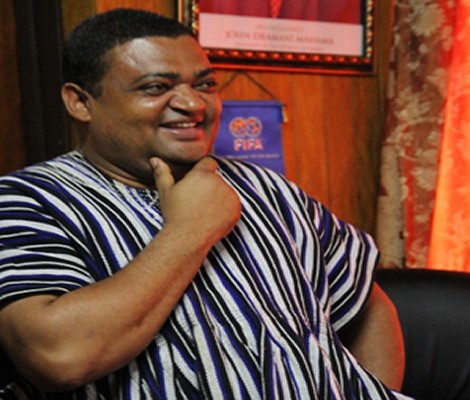 The presidential candidate of the Progressive People’s Party (PPP) in the 2012 general election, Dr Papa Kwesi Nduom, has called for the trimming down of the number of ministers to a maximum of 40 to reduce the cost of governance and set the tone for an effective restructuring of the public services.
The presidential candidate of the Progressive People’s Party (PPP) in the 2012 general election, Dr Papa Kwesi Nduom, has called for the trimming down of the number of ministers to a maximum of 40 to reduce the cost of governance and set the tone for an effective restructuring of the public services.
In his opinion, the number of ministers required at the centre should not be more than 13, including the Finance, Public Service, Foreign Affairs, Transportation (including roads, railways, aviation), Defence, Health and Education portfolios.
The rest are Trade, Human Services (including labour, social welfare, employment and youth affairs), Agriculture, Public Works (including water and housing), Energy and Justice (excluding the Office of the Attorney-General, which is to be made an autonomous public service entity to effectively fight corruption in the system — public and private).
“In total, we should not have more than 40 ministers at the centre and in the regions (including deputies),” he said in Accra yesterday when he delivered his version of the State of the Nation Address titled, “Solutions for Ghana: A nation in crisis”.
Dr Nduom said reducing the size of government meant certain public services, such as the National Development Planning Commission and the Ghana Statistical Service, should be made more effective in providing policy advice and information.
He said it also required the strengthening of the Civil Service to do more to ensure the effective administration of their ministries.
“I know that this is not a little matter. It is not one that will be easy – it has never been that way, as there are always lobbyists working for representation of one type or the other for their ‘sons and daughters’ in government. But it is a task that must be done,” he said.
Dr Nduom said it was important to appreciate that Ghana had been gripped by a crisis characterised by a lack of confidence that made it difficult for the people to make sacrifices and trust in what the leaders told them.
“We must recognise where we are and what we are confronted with and gather the courage to take steps in a long journey to restore faith in our leaders and build a nation that is able to feed itself and chart its own course. We must give power back to the people, so that at the grass roots, governance truly represents the will of all of the people. Then, and only then, can we begin to build a Ghana that is great and strong, with its people prosperous,” he said.
Dr Nduom called for unity and inclusivity to move the nation forward, pointing out that “it is this new national unity that will reinvent Ghana.”
“During these times of dramatic economic and social change, one thing has remained constant — a toxic, winner-takes-all political culture that has a deadly vice grip on the throats of our people. We must take concrete, sure steps away from this political culture or else we will remain a nation made poor by leaders who just want to win power for power’s sake,” he remarked.
According to him, the crisis facing the country was not necessarily due to its weak currency, exportation of raw materials, lack of industrialisation or high unemployment; it was about the 1992 Constitution “that legitimised an elected dictatorship and centralised our system of governance in a way that has left other arms of government weak to act and too poor to serve as an effective source of checks and balances.”
He renewed his stance on the need to elect district chief executives in order to enhance accountable governance at the local level.
On corruption, Dr Nduom called for the amendment of the Constitution to separate the Attorney-General’s office from that of the Ministry of Justice to help minimise corruption.
“Transparency, accountability, the truth and personal discipline are needed if we want to move Ghana into a higher level of performance and give our people the opportunity to enjoy a world-class standard of living in our lifetime,” he said.
On the need to restore the value of the national currency, Dr Nduom said that would not be a short-term enterprise, but “a long-term consistently applied policy and related practical measures to make this happen.”
“There are no easy short-term solutions and what we must do require sacrifice, efficient administration, a keen eye on corruption, courage and a leadership that is unwavering in the face of potential domestic and international backlash,” he said.
He disagreed with suggestions that the Single Spine Pay Policy was the cause of the country’s fiscal difficulties, contending, “The problem is the inability of the government to run an efficient and cost-effective administration tailored to the revenues it raises; in other words, fiscal mismanagement.”
Turning attention to the energy challenges in the country, Dr Nduom alleged that there were people who walked the halls of power not to deliver solutions, but find an easy way to make money under the guise of building power plants and oil refineries, but tended to interfere in the legitimate activities of government, thereby making it difficult for the government to start or implement the needed energy projects.
“I wish to encourage President Mahama to fight these people and take control over the energy agenda. This is a matter to be dealt with at the level of the President and I wish him well and hope that he does not allow himself to be pushed around,” he said.
